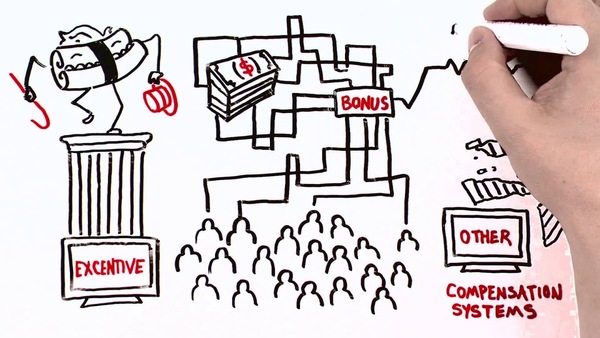Notifications
ALL BUSINESS
COMIDA
DIRECTORIES
ENTERTAINMENT
FINER THINGS
HEALTH
MARKETPLACE
MEMBER's ONLY
MONEY MATTER$
MOTIVATIONAL
NEWS & WEATHER
TECHNOLOGIA
TV NETWORKS
VIDEOS
VOTE USA 2026/2028
INVESTOR RELATIONS
COMING 2026 / 2027
ALL BUSINESS
COMIDA
DIRECTORIES
ENTERTAINMENT
FINER THINGS
HEALTH
MARKETPLACE
MEMBER's ONLY
MONEY MATTER$
MOTIVATIONAL
NEWS & WEATHER
TECHNOLOGIA
TV NETWORKS
VIDEOS
VOTE USA 2026/2028
INVESTOR RELATIONS
COMING 2026 / 2027
About Me
 Incentivate Solutions
Incentivate Solutions Incentivate Solutions is a company that provides a platform for businesses to reward and motivate their employees. Their innovative solutions aim to improve employee engagement and productivity, thereby increasing overall company success. With a focus on employee satisfaction, Incentivate Solutions helps companies create a positive work culture and retain top talent.
 Incentivate Solutions -
April 18, 2023 -
Business -
compensation management
-
852 views -
0 Comments -
0 Likes -
0 Reviews
Incentivate Solutions -
April 18, 2023 -
Business -
compensation management
-
852 views -
0 Comments -
0 Likes -
0 Reviews

Management of compensation is essential to any successful organisation. It describes creating, implementing, and administering compensation plans and policies that align with the organisation's aims and objectives. Compensation management is essential in today's cutthroat corporate climate for luring, keeping, and inspiring workers to perform to the best of their abilities. In this post, let’s talk about the value of compensation management and how it may aid businesses in achieving their highest productivity levels.
Recruiting and Holding on to Top Talent: Attracting and keeping top people is one of the organisations' main benefits of compensation management. Companies must provide competitive wage packages in a highly competitive employment market to entice and keep the best workers. Organisations may recruit top personnel by offering competitive salaries, incentives, and benefits packages through a well-designed compensation plan.
Both attracting and keeping great talent are crucial. A company may incur costs and experience disruptions due to high personnel turnover. Organisations may lower turnover and keep their best employees by providing competitive remuneration packages. As a result, there may be an improvement in morale, productivity, and working conditions.
Employee Motivation: Compensation management is essential for encouraging workers to give their best effort. Employee motivation and engagement are more likely to be high when they believe they are fairly compensated. An effective remuneration strategy can motivate staff members to put in more effort, be more efficient, and accomplish their objectives.
Organisations can provide a wide range of incentives through their pay programs. For instance, profit-sharing agreements, bonuses, and sales commissions offer staff members financial incentives to work hard. Non-monetary incentives like recognition programs, flexible work schedules, and chances for career advancement can also be powerful motivators.
Performance and Business Objectives Alignment: Another essential advantage of compensation management services is that they assist organisations in coordinating employee performance with their corporate goals. Organisations can ensure that workers are focused on attaining the essential objectives of the business by connecting compensation to specific performance measures.
A sales organisation could link compensation to sales volume or customer satisfaction levels. They can then motivate their sales crew to concentrate on bringing in money and providing top-notch customer service. It makes it easier to ensure that workers pursue the company's objectives and that their actions are consistent with the overall business strategy.
Legal and Compliance Concerns: The management of compensation is challenging. Organisations must be aware of various legal and compliance challenges when creating and implementing compensation programs. Organisations must abide by laws and regulations, for instance, those relating to the minimum wage, overtime compensation, and equal pay.
Organisations also need to be aware of the possibility of discrimination in their pay policies. Discrimination based on gender, ethnicity, age, and other protected characteristics falls under this category. By having fair and open compensation practices, organisations can ensure they comply with legal and regulatory standards, avoid expensive lawsuits, and face penalties.
Systems for automating the management and administration of sales compensation schemes are known as sales compensation management systems. These solutions aid businesses in streamlining the compensation procedure, minimizing mistakes and inaccuracies, and providing real-time information on sales performance and compensation payments. This article will review the advantages of deploying sales compensation management systems and how businesses can do it effectively.
Sales Compensation Management Systems' advantages include:
Increased Effectiveness:The ability to increase the Effectiveness of the compensation process is one of the main advantages of sales compensation management systems. Many of the laborious procedures involved in managing compensation plans, such as computing commissions and bonuses, monitoring performance indicators, and producing reports, are automated by these systems. Organizations might use the time and money saved to concentrate on more strategic projects.
Reduced Errors: Manual compensation systems are susceptible to mistakes and inaccuracies, which may lead to improper payouts and angry employees. Strategies for managing sales compensation can assist companies in cutting down on errors and guaranteeing fair and accurate compensation payments. These systems use automated computations and real-time data to ensure that compensation payouts are based on objective and recent data.
Transparency is increased because real-time visibility into sales performance and compensation payments is made possible by sales compensation management systems. Employees can then examine how their pay is determined and how it stacks up against their peers. The likelihood of disagreements or misunderstandings can be decreased, and employee satisfaction can be raised as a result of this increased transparency.
Better Incentives: Organizations can create and implement more effective incentives for their sales teams through sales compensation management systems. These technologies enable businesses to monitor performance indicators and modify compensation schemes in light of actual outcomes. It can ensure that rewards align with company goals and inspire workers to give their best effort.
Putting in place Sales Compensation Management Systems: Before putting in business a sales compensation management system, organizations should ascertain their needs and objectives. The kinds of pay schemes they want to implement, the performance measures they wish to monitor, and the reporting and analytics tools they want are all part of this process.
Choose a Vendor: Following identifying the requirements, organizations should assess several vendors and choose the sales compensation management system that best suits their needs. Functionality, ease of use, integration potential, and cost are important considerations.
Plan for Implementation: Careful preparation and coordination are necessary to implement a sales compensation management system successfully. Organizations should form a project team, create a project plan, and allot resources to ensure a successful implementation. Important activities include setting up compensation plans, configuring the system, and instructing staff on utilizing it.
Employee Communication: Employee communication is crucial during the implementation phase. It includes outlining the new system's advantages, giving instruction on how to use it, and answering any worries or inquiries they might have.
After implementing the sales compensation management system, businesses should keep an eye on how it is performing and make any necessary adjustments. It includes monitoring performance indicators, examining disbursements for compensation, and modifying compensation programs as required.
Conclusion
In conclusion, effective compensation management is vital to any successful business. It aids in recruiting and retaining top talent, inspires workers to provide their best efforts, ties performance to organizational goals, and complies with legal and regulatory standards. Organizations may maximize performance, accomplish their goals, and maintain competitiveness in the current business environment by establishing and implementing efficient compensation schemes.
